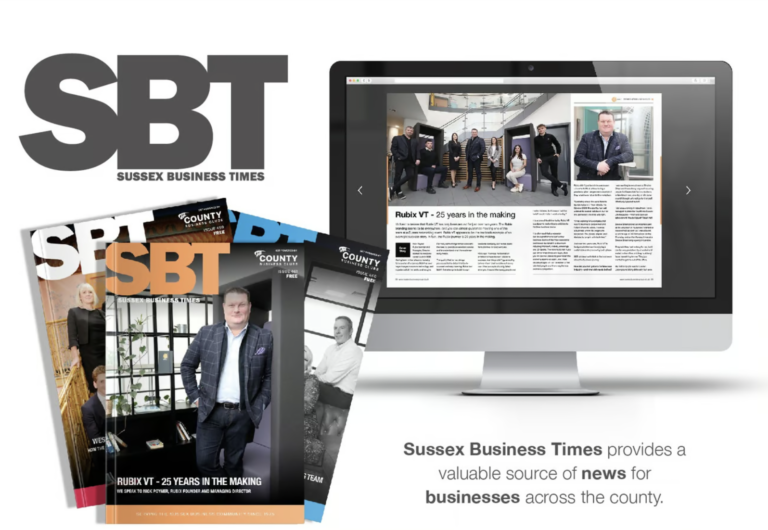A business needs customers. A successful enterprise must find new customers as well as looking after existing ones. But client acquisition and retention is hard work. So does your business need its own Call Centre?
For start-ups and small companies, acquiring and servicing new business is often a case of frenetic multi-tasking. As an organisation grows this becomes unsustainable. Typically, the first expansion comes with the appointment of salespeople.
In some cases, you need people to get on the phone and make sales calls.
For others, it is the case of appointing field salespeople. With face-to-face sales, there is usually a quick realisation that, rather than getting out and closing deals, your salespeople are spending too much time prospecting and setting up meetings. It is usually far more effective to find telephone-based staff to set up the meetings for them.
Either way, as a company grows, there is an increased reliance on telephony. And it soon becomes apparent that setting up your people with a table, chair and phone is simply not enough. There is no integration or internal communication, incoming phone calls are lost and there is no record of calls. Time and sales are lost.
And that’s just the start of what you are missing out on.
A call centre from Rubix will not just add efficiency and resilience, you can benefit from the latest advances in Artificial Intelligence.
Call centre calling
Firstly, what is a call centre? A call centre is a department or an office in which incoming and outgoing telephone calls from both new and existing customers are handled by a team of advisors, otherwise known as agents.
As well as telesales a call centre can be used for:
- Offering advice and technical support to customers
- Handling customer queries and complaints
- Carrying out telemarketing
- Conducting market research
- Lead generation
- Making appointments
- Payment and order processing
But at Rubix, we go further. Our call centre AI features include:
- Emotion and sentiment analysis
- Keyword and key phrase analysis
- Script analysis
- Natural language processing
Through intelligent machine learning, the call centre can assess caller satisfaction and analyse the customer journey. These are vital tools for improving customer experience, allowing you to tackle pain points and spot buying patterns.
Look out for our upcoming blog on how AI is revolutionising call centres and telecoms in general.
It’s great to talk
Before we go into the benefits of a call centre, there is the burning question to answer – are phones still relevant? It does sometimes feel like many large organisations are keen to avoid phone calls.
If you want to make a complaint about a late delivery, change your TV package or find out more about a product you are thinking of buying, you will almost certainly be referred to a website. And so often, you are left frustrated trying to find the answer to your query.
You aren’t alone.
When CRM software company, Zendesk, released its 2020 Customer Experience Trends Report, a survey of nearly 5,000 users, one of the questions was:
“How do you typically resolve your issues with a company?”
The results gave a clear verdict
- Phone 66%
- Email 49%
- Online form 28%
- Messaging 28%
- Chat 24%
- Social media 9%
- Community forum 7%
- Voice assistant device 4%
The conclusion is simple, customers prefer to communicate with humans when they have a query or complaint. Chatbots, email forms and social media are all important tools, but none trump human interaction.
The benefits of a call centre
- Reduced Costs
A dedicated team can make and receive far more calls, meaning more sales and more queries answered. It allows the rest of the team to get on with their tasks uninterrupted by phone queries.
- Increased Customer Satisfaction
Consumers expect their queries to be met by knowledgeable people, who are helpful and patient on the phone. You can train your call centre employees so they have an excellent phone manner and have all the information they need, quickly on hand.
- Consistent quality
Having a dedicated call team means that all calls are answered in a consistent professional way. When people are concentrating on a task and have to take a phone call, they are distracted and possibly off-hand. A call centre team member is focused purely on the call.
- Best use of resources
Incoming calls do not come in a consistent flow. Your call centre software will analyse call flows and allow you to ensure you have more staff on in busy times thus less chance of employees sitting around with no calls to take. Research into call behaviour suggests that customers are most likely to call on Mondays, and the busiest time is between 10 am and midday. Your call centre metrics will give you an accurate indication of your peaks and troughs.
- Dig team into metrics
Your call centre software can offer you valuable insights into your customer service.
Often used metrics include:
- How many people hang up while waiting to speak to an agent.
- The average length of a call.
- The time it takes a customer to reach an agent once they’ve been routed to the right department.
- How long a customer waits until a call is answered.
- The percentage of inbound calls that agents transfer to other team members or departments.
- Customer satisfaction with the call.
Knowledge is power. You can spot trends. Are calls taking too long? Are customers waiting too long? Which department are most calls transferred to?
The data allows you to allocate the right staff numbers and provide training where required.
- Market research
As well as measuring the customer experience, you also get insights into your business. For instance, if you are running a promotion or an advertising campaign, you can instantly discover the impact on sales queries.
- Call quality
When you set up a call centre, we can provide a dedicated leased line which ensures the clarity and reliability of call quality.
- Customer journey
Utilise our advanced AI technology to create the optimal customer experience.
If you think your business can benefit from a call centre, get in touch with us. We will happily offer impartial advice on whether it is right for you.






